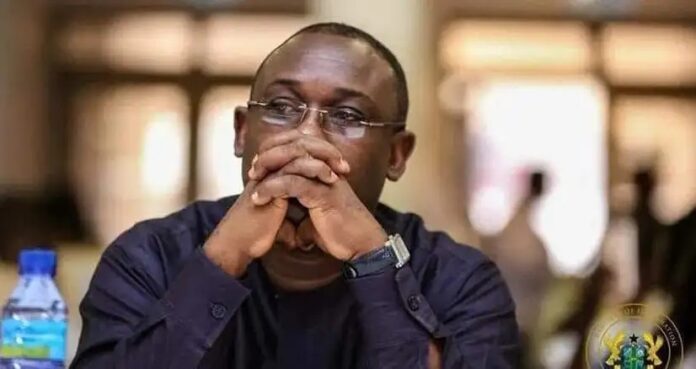Private legal practitioner Kofi Bentil has underscored that all individuals and entities are bound by the 1992 constitution of the Republic of Ghana, with the Supreme Court holding the authority to ascertain compliance with the constitution.
He emphasized that the exclusive institution empowered to interpret the Constitution is the Supreme Court. In a communication on his Facebook page concerning the Supreme Court’s ruling that suspended the enforcement of the Speaker of Parliament’s declaration of four seats as vacant, the Vice President of IMANI Africa stated, “Can the Supreme Court review parliamentary action? Context is crucial, and clarity emerges when additional principles are considered. To explain these principles, I ask several questions; their responses help me conclude. No individual or institution is above the law. Verified. The constitution is the paramount law, and accordingly, no entity supersedes it. Verified. All authority emanates from and is subject to the Constitution.
Verified. The sole institution vested with the authority to interpret the Constitution is the Supreme Court. Verified. No entity deriving power and authority from the Constitution can claim superiority over the Constitution or any of its provisions. Verified. Taken together, the aforementioned signifies that everything and everyone is subject to the Constitution, and it is the Supreme Court that decides whether an entity complies with the Constitution. Essentially, the Supreme Court’s interpretation of the Constitution applies to everyone and everything.
That being said, any human institution is susceptible to misuse and partiality. Power does not invariably equate to sagacity or integrity. Caligula appointed his horse as a consul, although this act did not contravene any existing law, it was assuredly neither prudent nor necessary. Power does not assure rectitude.”
Former Justice of the Supreme Court, Justice William Atuguba, for instance, has contended that the Supreme Court’s jurisdiction was improperly invoked in the case of Alexander Afenyo-Markin versus the Speaker and the Attorney General, pertaining to the Speaker’s decision to declare four seats vacant. On Friday, October 18, the Supreme Court directed Parliament to acknowledge and permit the four MPs to continue serving as lawmakers until the case is resolved. This directive followed the Speaker’s declaration of four parliamentary seats as vacant on Thursday, October 17.
The constituencies and the lawmakers are as follows: 1. Cynthia Morrison, the current NPP MP for Agona West constituency in the Central Region, who has submitted candidacy as an independent candidate. 2. Kwadwo Asante, the current NPP MP for the Suhum constituency in the Eastern Region, who has also submitted candidacy as an independent candidate. 3. Andrew Asiamah Amoako, presently an independent MP for the Fomena constituency in the Ashanti Region, who has submitted candidacy for the upcoming election as a candidate for the ruling New Patriotic Party (NPP).
4. Peter Kwakye Ackah (Amenfi Central), NDC. Former Minority Leader Haruna Iddrisu had petitioned the Speaker to declare the seats vacant by invoking Article 97 (1)(g) of the Constitution, which stipulates that a lawmaker must vacate their seat if they leave the party under which they were elected or attempt to remain in Parliament as an independent candidate. The Majority Leader Afenyo-Markin had filed a suit at the Supreme Court against the petition filed by Haruna Iddrisu.
However, the National Democratic Congress (NDC) lawmakers declared their intent to adhere to the Speaker’s ruling declaring four seats vacant, a decision that positions them as the Majority in Parliament. This is in spite of the Supreme Court’s instruction to halt the implementation of Speaker Alban Bagbin’s ruling.



